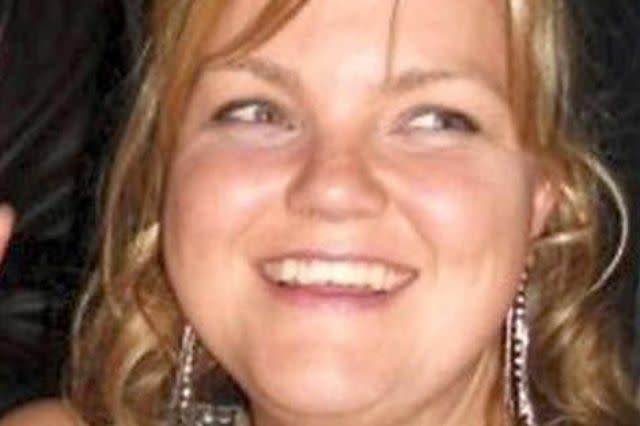Wedding planner spoils over 100 weddings, but made to repay just £1

Sarah Cawthorne, a 32-year-old wedding planner from Dudley in the West Midlands, took £120,000 from more than 100 brides, and agreed to organise everything from dance floors to canopies for their weddings. Then she spent the lot on gambling and a holiday, and has only been made to repay £1.
Her company, A Little Bit of Bling, offered discounts for payment in advance, so she had the money up-front. Then when their big day dawned, Cawthorne failed to show up, and left more than 100 couples in the lurch.
Instead she spent the money paying for a family holiday in Disney World in Florida, and blew a small fortune gambling.
The brides were told sob stories: Cawthorne claimed she was ill, that she had been stabbed, that she had been in a car crash, and that she had no money. However, after some of the brides saw Facebook pictures of her holiday when she should have been at their wedding, they called Trading Standards, which led to her prosecution.
She was sentenced to 12 months in prison back in April, but the Daily Mail has revealed that she has already been released with an electronic tag. The Express and Star revealed that last week, a separate Proceeds of Crime case had been brought to court, but despite taking £122,434 from her victims, she told the court she had no assets, and so Dudley Council agreed she would repay just £1.
%VIRTUAL-ArticleSidebar-crime-stories%
Is this fair?
This seems incredible, especially as it means there is now absolutely no chance that the victims of her fraud will receive anything. However, it's common practice when a criminal has nothing left of any value, and it demonstrates how ineffective this scheme is where the criminals are profligate spenders.
Today it emerged that it had cost £1.4 million to prosecute the members of a £21 million pyramid scheme, and while six members of the gang behind the 'Give and Take' scheme were made to repay more than £500,000, two members had nothing left, so only had to pay £1.
A drugs gang in Telford, meanwhile, was thought to have made £400,000. However, when it came to recovering their assets today, a court found that other than mobile phones and gadgets, one member of the gang had to pay just £1, one £465, one £960, and one £169. Four more members of the gang remain to hear what they will have to repay.
The Proceeds of Crime legislation has been around since 2002, and in principle is a sound idea. It enables police to seize cash immediately while criminals await trial, and technically it stops people from being able to serve jail time and then continue to benefit from their crime.
The money is then split, with half going to the Home Office, and the other half split evenly between the police, the Crown Prosecution Service and the courts - all of which need all the funding they can get. The judge can also award money to the victims as compensation.
It clearly works well when there's money left, but is £1 enough of a price from criminals to pay when they have already enjoyed the financial benefits of their crime? Should they be made to repay it all from their earnings, or would this put them off returning to a legitimate career? What do you think? Let us know in the comments.
Crime stories on AOL Money
Lottery employee sentenced to 10 years in prison
Grandmother jailed after stealing for man she met on holiday
Boom in adult children stealing from parents





